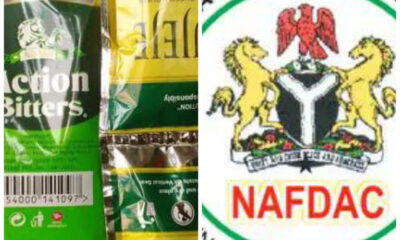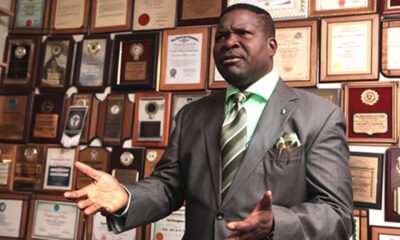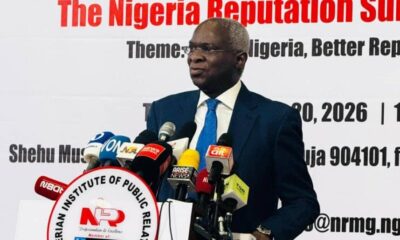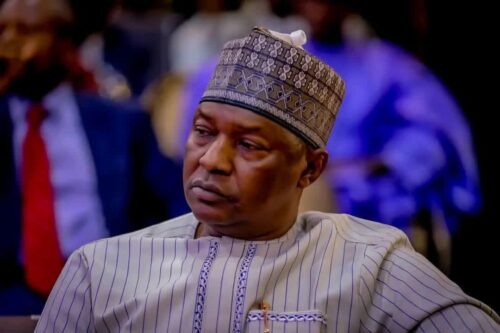Thousands of telecommunications subscribers around the country have been left stranded due to a technical fault in the National Identity Management Commission portal, which has rendered SIM-related services unavailable.
According to the Federal Government’s decision, the impacted NIMC portal allows telecom companies, the Nigerian Immigration Service, banks, and other organizations to authenticate their clients’ National Identity Numbers before providing service to them.
Following the Nigerian Communications Commission’s decision to include NIN in the requirements for all new and existing SIM cards, telecom companies must synchronize their SIM registration portals with the NIMC portal to validate their subscribers’ information.
Downtime enters sixth day, MTN, Glo, Airtel, 9mobile suspend SIM replacement/acquisition
However, the downtime experienced over the past five days by the NIMC portal has made it almost impossible for telecom firms to sell new SIM cards or retrieve lost lines.
According to a source at MTN who spoke on condition of anonymity because she was not authorised to speak on the matter, the downtime in the NIMC network which occurred late on Tuesday has brought SIM-related services to a halt.
The source said, “NIMC made it compulsory that before we can register a customer, we have to verify their NIN. The agency gave us a back route to its server. We connect to the server to verify NIN. When we verify, it will bring the record of the customer (the information the customer gave to NIMC while registering for NIN). We have to confirm the information the customer gave NIMC against what we have. There’s a way we connect to the NIMC server. It is that server that has been down since Wednesday.
“Before now, we didn’t need NIN to do this. We just use the customer’s valid ID card and SIM pack. If the customer does not have that, a sworn affidavit is okay. However, the introduction of NIN has changed that.”
Speaking on how the development might affect the company’s revenue, the official said, “We have registration stores (centres) that attend to hundreds of customers on a daily basis. In my service centre, we attend to not less than 200 customers in a day. We can’t really estimate the amount we are losing. Sometimes, after retrieving their lines, some customers can buy as much as N30,000 airtime. Some can buy as much as N5,000 airtime. So, any day we don’t do business, one service centre can lose up to hundreds of thousands of naira.”
When our correspondents visited some service centres of the telcos, officials and customers narrated their ordeals.
When one of our correspondents paid a visit to a Glo retail outlet in Lagos, a myriad of frustrated subscribers could be seen inside and outside the premises of the service centre.
Some of the subscribers told our correspondent that they had visited the outlet for days on end but they were not attended to due to the NIMC portal glitch.
“Seriously I don’t understand, and I called them to ask if everything was okay before I came here. I came the other day and they told me the same thing,” a disgruntled subscriber said after being told SIM-related services was yet to be restored due to the NIMC server glitch.
In a chat with one of our correspondents, a top official at a Glo retail outlet, who also pleaded anonymity, confirmed that with the new directive by the NCC, all telcos are compulsorily required to verify the NIN details of all subscribers before registering their new SIM cards.
“The problem is with the NIMC server. Their server is down; we can’t connect with them. We don’t know when it will be back. All the telecoms (companies) have networks but because of NIN verification, we can’t work. It is a Federal Government directive: without NIN, we can’t do anything. Even if you want to buy SIM and register, without NIN, you can’t do it.”
In the same vein, subscribers were seen at an Airtel office lamenting their inability to retrieve their GSM lines despite repeated attempts to do so during the week.
A subscriber, who identified himself as Tochukwu, said, “This is my second time here and they have been saying the same thing, that they don’t have a network. They’re saying it’s because of this NIN something. It’s quite disappointing because, after today which is Saturday, I won’t have a chance to do this again.”
A member of staff at the Airtel office, who did not want to be named, said the NIMC portal downtime had grounded SIM-related services of telcos across the country.
“You cannot get a new SIM until next week because there is no network. It’s not all network. It is this NIN something. It’s because we have to use your NIN to register the SIM. It affects all the telecommunications (companies),” he said.
NIMC, telcos, other stakeholders meet
As the problem lingered, it was gathered that the NIMC officials held a meeting with telcos and other stakeholders over the development.
It was learnt that NIMC advised telcos to temporarily revert to the vNIN platform until it is able to sort out its technical difficulties.
A top official privy to the development said, “NIMC confirms its service is still down and it doesn’t have an estimated turnaround time from its service provider. Hence, it is looking for alternatives to restore services over the weekend. However, NIMC has proposed that we use vNIN in the interim which the industry kicked against based on technical readiness and process issues.”
However, the meeting held with NIMC resolved that telcos must uphold certain rules while the glitch lingers.
It said, “New registration and SIM swap without a prior verified NIN and linked to our Know Your Customer will not be allowed until full service is restored.
“SIM swap for a previously verified NIN that has been linked to our (telcoms) Know Your Customer will be allowed to proceed based on when approval letter is received from NCC today (Friday).
“New SIM registration (additional SIM for an existing subscriber with a previously verified NIN and linked to our (telcoms) Know Your Customer) will be allowed to proceed based on when approval letter is received from NCC today (Friday).”
As of the time of filing this report, it could not be verified if the approval has been received or not.
According to some telcos’ officials, there is a feeling of discontent among operators due to the technical readiness and bottlenecks that would be required to make the temporary switch to the vNIN.
It was gathered that the telcos had kicked against it when it was suggested initially.
It is understood that the vNIN, which involves generating tokens, is riddled with technical concerns that the telcos are not prepared to commit resources to, particularly given the fact that the switch to the vNIN platform will only be on a temporary basis until the NIMC server glitch is resolved.
“Nobody is prepared for that one (tokenisation). It was supposed to start in January, but they (telcos) were not ready. Now they’re trying to push tokens. It’s possible they deliberately collapsed this one so they can push people to tokens. I don’t know why they do that. There has been no proper training (in how to use the token system),” a top official of a telecom firm said.
Also, officials of the Nigerian Immigration Service told our correspondents on condition of anonymity that the passport application process was delayed in some passport offices because the NIN verification process was stalled.
They said some passport capturing appointments might have to be rebooked over the development.
“The glitch at the NIMC portal affected the passport application process during the week. There was a need to verify applicants NINs. This could not be done. It started late on Tuesday,” an immigration official, who spoke on condition of anonymity, said.
Also, top officials of some banks said the development affected account opening during the past week as applicants who had NIN as their only means of identification could not be attended to.
“Banks have various portals for verifying IDs. Those with NINs could not be attended to because the portal was down,” an official of FCMB said on condition of anonymity because he was not authorised to speak on the development.
When contacted, the NIMC spokesperson, Kayode Adegoke, who preferred to revert via SMS, had not responded to text messages as at the time of filing this report.
However, a public statement issued by the NIMC late on Saturday linked the problem to downtime as a result of a “maintenance service.”
However, checks with some of the telcos reveal that prior information about this maintenance was not communicated to them.
NIN verification service down due to maintenance says NIMC
In a statement, the NIMC said its NIN verification service was down due to maintenance being executed by its service provider.
The statement was titled ‘NIMC NIN verification service temporarily unavailable.”
It read, “The National Identity Management Commission wishes to inform the general public that its NIN Verification Service is temporarily unavailable due to the maintenance service being carried out by one of the Commission’s network service providers.
“The NIMC wants to assure the public that verification and authentication services would be restored once the maintenance is concluded.
“The commission apologises for any inconveniences this might cause our esteemed customers, and all hands are on deck to ensure speedy restoration. Meanwhile, the public can make use of the alternative tokenisation verification platform.”
The President, National Association of Telecoms Subscribers, Adeolu Ogunbanjo, said the association was aware of the NIMC server downtime and had been duly informed that the situation was being handled.
He said, “I learnt it’s a network issue. It’s something they’re looking at. I called two operators, especially the regulatory officials and they said they were working on it and that it would soon be restored. It’s rather unfortunate, but what do you do? I’m sure NCC knows about it.
“What I’ve not done is to talk to the NCC, and that is because the operators have said it’s an issue they are addressing. I want to go to Alausa tomorrow to find out what is happening apart from what the operators have told me.”
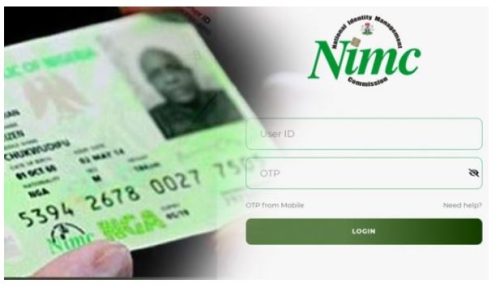

 SPORT3 days ago
SPORT3 days ago
 BIG STORY5 hours ago
BIG STORY5 hours ago
 BIG STORY3 days ago
BIG STORY3 days ago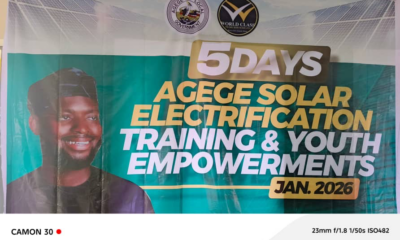
 POLITICS3 days ago
POLITICS3 days ago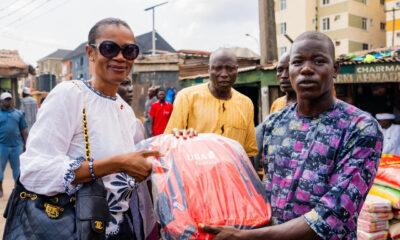
 BUSINESS3 days ago
BUSINESS3 days ago
 BIG STORY5 hours ago
BIG STORY5 hours ago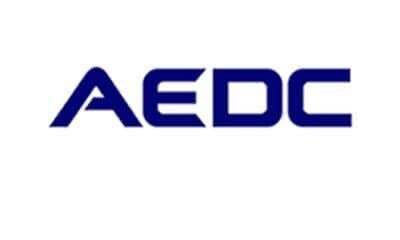
 NEWS3 days ago
NEWS3 days ago
 NEWS1 day ago
NEWS1 day ago






